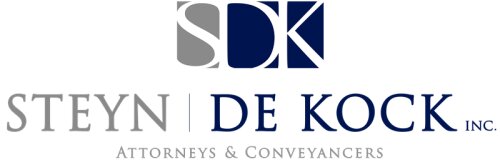Best Tax Increment Financing Lawyers in Welkom
Share your needs with us, get contacted by law firms.
Free. Takes 2 min.
List of the best lawyers in Welkom, South Africa
About Tax Increment Financing Law in Welkom, South Africa
Tax Increment Financing (TIF) is a development financing mechanism used in various countries to promote urban renewal, economic revitalization, and infrastructure improvements. In Welkom, South Africa, TIF is not yet a mature or widely used financial instrument; however, similar concepts have been implemented through special rates policies, Local Government: Municipal Property Rates Act (MPRA), and certain municipal development frameworks. The idea centers on capturing the future increased property tax revenues (due to rising property values spurred by development) and using those gains to finance current infrastructure improvements. Awareness and use of TIF in Welkom may increase as local governments seek innovative ways to drive urban growth.
Why You May Need a Lawyer
Legal assistance in Tax Increment Financing can be crucial for various reasons, especially as these financing structures involve complex interactions between developers, municipalities, property owners, and financial institutions. Here are common situations where a lawyer can help:
- Guiding on the legal frameworks and compliance with municipal and national regulations
- Drafting or reviewing agreements between developers, local authorities, and third parties
- Advising property owners and investors on the impact of TIF or similar schemes on their interests
- Negotiating terms related to property rates, special levies, and contributions
- Representing clients in disputes regarding land designation, property taxes, or benefits derived from TIF projects
- Conducting due diligence in property and land transactions influenced by urban development initiatives
- Ensuring environmental and zoning compliance during project planning and execution
Local Laws Overview
While South Africa does not have a specific Tax Increment Financing law, local tools and policies serve similar aims. In Welkom, tax and property-related development projects are governed primarily by:
- Local Government: Municipal Property Rates Act (MPRA) 6 of 2004: This act empowers municipalities to assess, levy, and collect property rates for land and property within their jurisdiction, with certain provisions for special rating areas that can, in practice, resemble TIF schemes.
- Municipal Finance Management Act (MFMA): Regulates municipal budgeting, investments, and how funds are allocated for infrastructure projects.
- Spatial Planning and Land Use Management Act (SPLUMA): Governs land use, rezoning, and planning for sustainable urban development in the region.
- Lejweleputswa District Municipality and Matjhabeng Local Municipality Bylaws: Local regulations specific to Welkom may include by-laws on special rates areas, infrastructure levies, and urban renewal initiatives.
Engaging with these local laws and frameworks is essential for structuring development projects, understanding funding options, and ensuring legal compliance during implementation.
Frequently Asked Questions
What is Tax Increment Financing (TIF)?
TIF is a public financing method where future property tax increases (resulting from development-led property value gains) are used to fund improvements or infrastructure in a specific area.
Is Tax Increment Financing legal and available in Welkom, South Africa?
There is no direct TIF statute in South Africa, but similar mechanisms-such as special rating areas and infrastructure levies-are applied under local government policy and national laws.
Who can propose a TIF or special rating area project in Welkom?
Municipalities, private developers, or local communities (such as business or property owner associations) can propose development or special rating area projects to the relevant authorities.
How are property owners impacted by a TIF or similar scheme?
Property owners may experience changes in property rates or special levies, but ideally, these schemes fund public improvements that increase area attractiveness and property values.
What types of projects can TIF or similar funds finance?
Typical projects include roadworks, street lighting, public spaces, urban regeneration activities, bulk infrastructure upgrades, and other developments that stimulate local economic growth.
Are there risks or drawbacks to participating in TIF projects?
Potential risks include higher property rates, disputes over project benefits, or financial strain if projected revenue growth does not materialize as expected.
How do municipalities ensure accountability in the use of these funds?
Municipalities are governed by the MFMA and MPRA, which require transparent budgeting, public participation, and reporting on expenditure related to such initiatives.
Can individuals or businesses oppose a proposed TIF or special rating area?
Yes, during the public consultation phase, stakeholders can submit objections or suggestions regarding the implementation or boundaries of such schemes.
What legal documents are typically required for TIF-like projects?
Key documents include by-law amendments, agreements between developers and the municipality, property owner consent forms, and project implementation plans.
How can I find a lawyer experienced in local development and financing law?
Seek attorneys specializing in municipal law, property law, or public finance-preferably with experience in local government projects in Welkom or the Free State province.
Additional Resources
If you need more information or support regarding Tax Increment Financing or related local development funding in Welkom, consider reaching out to the following:
- Matjhabeng Local Municipality: Department of Planning and Economic Development, for guidance on local urban development projects and relevant by-laws.
- Lejweleputswa District Municipality: For district-level planning initiatives and infrastructure funding programs.
- Legal Aid South Africa: For general legal advice, especially if you qualify for state-supported legal assistance.
- South African Cities Network (SACN): For publications and research on urban renewal, infrastructure finance, and special billing areas.
- South African Property Owners Association (SAPOA): For industry insights and legal resources for property owners impacted by urban development policies.
Next Steps
If you are considering participating in, affected by, or opposing a Tax Increment Financing or similar local development initiative in Welkom, take these steps:
- Gather documentation relevant to your property, the development proposal, or project in question.
- Attend public meetings or consultations organized by the municipality or developer.
- Consult a qualified local attorney experienced in municipal and property law to assess your position, clarify your rights, and review any agreements.
- Stay informed about policy changes or new initiatives by following municipal website updates and subscribing to community bulletins.
- If you need legal representation, schedule an appointment for a detailed legal strategy tailored to your circumstances.
Acting early and seeking expert guidance will help you understand your rights and responsibilities, and make proactive decisions regarding local development finance in Welkom.
Lawzana helps you find the best lawyers and law firms in Welkom through a curated and pre-screened list of qualified legal professionals. Our platform offers rankings and detailed profiles of attorneys and law firms, allowing you to compare based on practice areas, including Tax Increment Financing, experience, and client feedback.
Each profile includes a description of the firm's areas of practice, client reviews, team members and partners, year of establishment, spoken languages, office locations, contact information, social media presence, and any published articles or resources. Most firms on our platform speak English and are experienced in both local and international legal matters.
Get a quote from top-rated law firms in Welkom, South Africa — quickly, securely, and without unnecessary hassle.
Disclaimer:
The information provided on this page is for general informational purposes only and does not constitute legal advice. While we strive to ensure the accuracy and relevance of the content, legal information may change over time, and interpretations of the law can vary. You should always consult with a qualified legal professional for advice specific to your situation.
We disclaim all liability for actions taken or not taken based on the content of this page. If you believe any information is incorrect or outdated, please contact us, and we will review and update it where appropriate.









